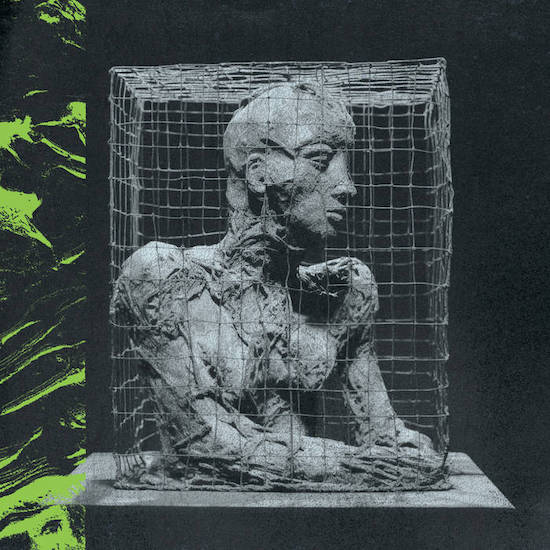It’s been six long years since we last heard a new album from Matthew Barnes, the Wirral-born artist who goes by Forest Swords. But then, it never felt like he was ever much concerned by anyone else’s time anyway. When his breakthrough EP, Dagger Paths, was released in 2010, the world of electronic music was beginning to revolve around the soft grooved delights of Caribou’s Caribou or the colossal buzzsaws of Skrillex-era dubstep. Not Barnes. He took the slower path; doing justice to that stark, evocative moniker by headed in directions far more subterranean, using cavernous bass, shuffling rhythms and ghostly vocal melodies to plumb depths of dubstep and foggier iterations of house so eerie that some publications dubbed it ‘Witch House’.
Thankfully, Barnes long-outlasted those fad-genre labels, and his music grew in various directions over the course of a decade. The beloved Engravings was mixed entirely outdoors, allowing the windswept, mossy timbres of the Wirral’s battered heaths into his ghostly compositions, imbuing synthetic music with the temperament of psychedelic folk. On 2017’s Compassion, things opened up, and Barnes swapped knotty guitars for soaring strings, allowing a little light to enter his equations. On Bolted, things take a turn for the darker again. Maybe it’s because of the brutal, tragic images of conflict which fill every inch of life’s many screens just as the album enters the world, but it reminds me of only one thing: war.
Bolted was made under opposite conditions to Engravings: not out on the peninsular but in the middle of a cold, disused factory space in Liverpool, where Barnes shut himself off from the world while dealing with a leg injury which emanated “psychedelic amounts of pain”. The throbbing sensation of acute bodily trauma and the coldness of steel inform every inch of this new album. Opener ‘Munitions’ begins in battle formation, the very first second of sound on the album being the blaring of a klaxon, ringing out in a call-and-response with crunches of shattered drums.
Many of the songs on this record feel like they were made to soundtrack the march to battle; whether in the drums of ‘The Low’, which sound like they were played by battalions on the march to war, or ‘Chain Link’, with its vast, cavernous fog horns. But even though it feels like it has its roots in ugly confrontation, this isn’t a record of pure machismo. On lead single ‘Butterfly Effect’ – a pop song of a kind, if you squint hard enough – Barnes cuts up an unreleased Neneh Cherry vocal. Cherry began her solo career with a protest song about the Falklands War, and here she sounds like she’s in the midst of it, like a lonely God, overseeing a march into battle. ‘Line Gone Cold’ even ends with a rumination on grief from Lee ‘Scratch’ Perry himself.
While many of the tracks surge open in catastrophic fashion, it usually isn’t long until haunting, patient melodies enter the fray. It’s here where you can so easily understand why Barnes has become a go-to for soundtrack work in recent years: these songs like these feel like both the scenes and the score all at once. Barnes sets up pummelling rhythms and then, when a central melody or a spectral vocal emerges, responds to carnage with melancholic horror. The imagery which accompanies the record certainly helps; a retro-futurist sculpture made by Barnes himself, of a lonely statue frozen in thought, remembering the devastation of a war yet to begin.
This grandiose talk of war and history might feel overblown, but such is the scope of these compositions. The sound design is absolutely phenomenal, rich in detail. New components, from the clanging of chimes to the rattling or chains, enter from moment to moment. It’s every bit the album Engravings was: a vast world of sound unfolding on a battlefield which exists between the ears.


